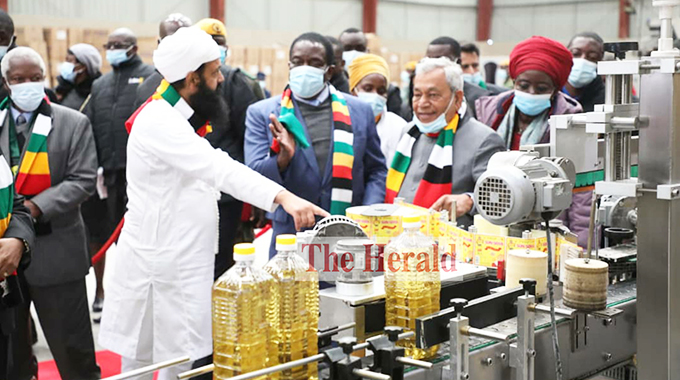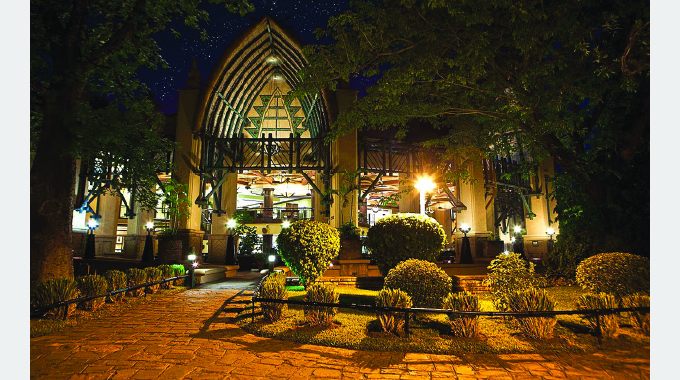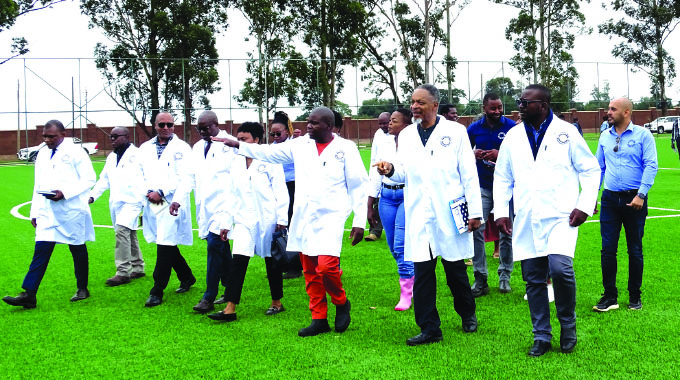EDITORIAL COMMENT: Let’s make Mahusekwa a shining example

The opening of a US$20 million edible oil refinery in Mahusekwa, a small town in the communal lands south-east of Harare is important for two reasons: First it is a new investment in Zimbabwe, but secondly it is in what will one day be a new town and industrial centre in the rural areas.
Mahusekwa is a bit more than a village. It has the local hospital and police station, a secondary school, plus a modest planned residential area and the usual small shopping centre found in most of rural Zimbabwe. And it is connected to the Zesa grid.
Just as important it is on the main side road cutting across the farming area, so there is fairly easy access for the trucks bringing in the oil seed and a fairly easy route for the trucks taking out the cartons of cooking oil.
There is land available to expand the residential area of the town almost instantly, so staff recruited both nearby and from further afield can build decent houses for significantly less than they would pay if building the same home on expensive Harare land, or even in Marondera.
And being able to build a brand-new decent home within a few minutes walk of where you work is impossible in large towns, let alone cities, these days.
Commissioning the factory, President Mnangagwa stressed this need for residential areas to be planned simultaneously with industrial areas and not just be left to later.
Mahusekwa has a lot of the required basic infrastructure in health and education plus residential land on a Zesa supply that can be readily expanded to do both.
The local rural district council needs to ensure that this dual planning for industrialist and the work force is kept in step.
As the factory and its workforce grow, a pleasant town will emerge that will attract other businesses automatically. We only need to look at the small towns that suddenly arise near major new mines to see what will happen.
It is near enough to Harare, obviously the major market for any consumer industry, for those delivery trucks to have a fairly short journey, and maintenance technicians can thus easily hitch a ride when then need to buy some spare part, or when someone needs to take a delivery of hexane for processing seeds or any other supply.
Mount Meru Millers of Tanzania seem to have figured out a good bargain.
They are in the middle of a farming area where oil seed is actually grown, so as time goes on they can probably set up contract schemes to get direct supplies; they are close enough to Marondera, Beatrice, Hwedza and Harare to tap the Grain Marketing Board depots.
Farmers from the area were there at the opening, and made it clear that with an assured market right on their doorstep for oil seed they were more than ready to tap into the Government’s input schemes and put in these crops.
Mahusekwa is close enough to a range of resettlement areas as well, being in Marondera district, so there should be little trouble building up a mutually beneficial and cosy relationship with farmers.
Labour is obviously assured. This was one major reason why local families wanted this development so badly. There will be jobs for their children who are more keen on factory jobs than farming, as well as a good deal for their children who would rather grow the oil seed their sisters will process.
One huge advantage of working in a small town, even if you are staying with your family on a small farm nearby, is that there are zero transport costs.
A large potential labour force is within a 30-minute walk of the factory and with the upgrades in secondary education and the closeness of technical training many jobs from the beginning can be given to local recruits and others can be recruited easily enough in nearby urban centres.
This is rural development at its best, not so much the result of a political decision but through economic forces.
Mount Meru Millers found it cheaper to set up their Zimbabwean factory in a rural area rather than up the road in Harare, and being the main commercial enterprise in the area will obviously be able to get most of their problems sorted out quickly by the local rural district council.
Councillors and the local traditional leaders were there, along with provincial leaders and President Mnangagwa himself who presided over the commissioning ceremony. Political considerations help since rural industrialisation is a serious Government policy.
President Mnangagwa was able to sell Zimbabwe as an investment destination in talks in Dubai with Mr Atui Mittal of Mount Meru, and he repeated his promises that any problems the company has, they will be sorted out.
What needs to be done now is to make sure that Mahusekwa becomes a model development centre. Some things will not be that simple.
But if the Government at all levels – national, provincial district and ward – puts in the effort then as other investors, local and foreign, decide that a rural centre with the right potential is a good deal, there will be a good example to follow.
It is also important that Zimbabwe delivers on its promises to Mount Meru Millers.
It becomes much easier to sell rural industrialisation to an investor, again local or foreign, if you can point to a success and suggest they at least drive past. Seeing is believing.








Comments